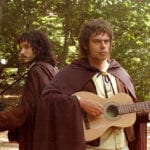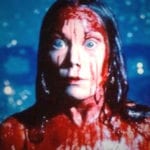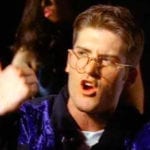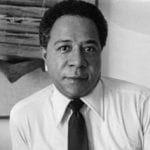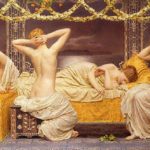 History
History  History
History  Health
Health 10 Everyday Activities That Secretly Alter Consciousness
 History
History Top 10 Historical Disasters Caused by Someone Calling in Sick
 Animals
Animals 10 New Shark Secrets That Recently Dropped
 Movies and TV
Movies and TV 10 Forgotten Realities of Early Live Television Broadcasts
 Technology
Technology 10 Stopgap Technologies That Became Industry Standards
 Weird Stuff
Weird Stuff 10 Wild Facts About Taxidermy That You Probably Didn’t Know
 Travel
Travel 10 Beautiful Travel Destinations (That Will Kill You)
 Miscellaneous
Miscellaneous 10 Modern Marriage Rituals Born from Corporate Branding
 Weird Stuff
Weird Stuff Ten Bizarre Visions of 2026 from Fiction
 History
History 10 “Modern” Problems with Surprising Historical Analogs
 Health
Health 10 Everyday Activities That Secretly Alter Consciousness
 History
History Top 10 Historical Disasters Caused by Someone Calling in Sick
Who's Behind Listverse?

Jamie Frater
Head Editor
Jamie founded Listverse due to an insatiable desire to share fascinating, obscure, and bizarre facts. He has been a guest speaker on numerous national radio and television stations and is a five time published author.
More About Us Animals
Animals 10 New Shark Secrets That Recently Dropped
 Movies and TV
Movies and TV 10 Forgotten Realities of Early Live Television Broadcasts
 Technology
Technology 10 Stopgap Technologies That Became Industry Standards
 Weird Stuff
Weird Stuff 10 Wild Facts About Taxidermy That You Probably Didn’t Know
 Travel
Travel 10 Beautiful Travel Destinations (That Will Kill You)
 Miscellaneous
Miscellaneous 10 Modern Marriage Rituals Born from Corporate Branding
 Weird Stuff
Weird Stuff Ten Bizarre Visions of 2026 from Fiction
Top 10 Greatest Reggae Singers
Reggae, the unique bouncing music with the sticky beat and the emphasis on percussion and bass, formed out of mento, rocksteady and ska. It has developed into many sub-genres and has left an indelible mark on popular music, even influencing the early development of hip hop. This list presents ten of, what the author believes to be, the greatest reggae singers of all time. The singers’ international success, album sales and impact on the music itself have all been taken into account. Paring this list down to the ten greatest was difficult, so a number of great singers whose careers began more recently have been left off. It may be anachronistic to refer to ska and rocksteady as reggae, but it has become common to categorize these two genres under this heading.
Please note that this is a list of reggae singers, so this list does not include reggae deejays, deejays who also happen to sing, instrumentalists or producers.
The poised and refined Ellis was a trailblazer in the Jamaican music scene, his soulful voice warming the ears of many listeners with his pioneering forays into rocksteady and his unique covers of R&B classics. Alton Nehemiah Ellis was born in 1938, in Kingston’s Trenchtown, to a family that encouraged his artistic pursuits. Ellis took piano lessons at a young age, and won several dance competitions before focusing on a singing career. Teaming up with Eddy Perkins, the young Alton began recording R&B songs for Coxsonne Dodd. With six Jamaican hits under their belts, the duo seemed destined for greater success. Perkins, however, moved to the United States after winning a talent contest. Alton briefly worked with John Holt, before forming his own group, the Flames. As ska began to glorify the often violent rude boy subculture, Ellis grew more and more frustrated – recording several songs directed at the rude boys and denouncing artists who glorified the rude boys. Two of these anti-rudie tunes, “Cry Tough” and “Dance Crasher” became large hits.
“Girl I’ve Got a Date” and “Get Ready, Rock Steady” were also big hits for Ellis, with the latter being the first song in the new genre of rocksteady (emerging from a session with the great keyboardist, Jackie Mittoo). Ellis continued to dominate this new form of music. In the early Seventies, Ellis covers of “Willow Tree,” “Sitting in the Park,” and “I’m Just a Guy” became big Jamaican hits. Two of Ellis’ original songs, the more rootsy “Back to Africa” and “Lord Deliver Us” also struck Jamaican gold. Unfortunately, all of Alton’s success was not translating financially for the artist. Ellis moved briefly to the United States and Canada before settling in the UK and setting up his own label, Alltone. He had mild success with his new label, but was one of the many reggae singers overshadowed by Marley’s great success. Ellis received the Order of Distinction from the Jamaican government, in 2004, for his musical achievements. Four years later, Ellis died of cancer, leaving behind numerous children and a beloved catalogue of ska, rocksteady and reggae classics.
Winston Rodney was born in 1948, in the same locale as Bob Marley, and it was a meeting with Marley, in 1969, that began Rodney’s journey to success. Rodney asked for Marley’s advice on entering the music business, and Bob advised him to look up Clement “Coxsonne” Dodd. Performing in a duo with his friend, Rupert Willington, the two caught Dodd’s ear. Inspired by Jomo Kenyatta, Kenya’s Mau Mau leader, Rodney chose the name “Burning Spear” for the group. The group was joined by Delroy Hinds who helped Willington back up Winston’s unmistakable chanting vocals. Their first successful single was “Joe Frazier (He Prayed),” which was a runaway Jamaican hit. Right from the start, the groups’ singles focused on conscious themes of deep Rastafarian spirituality and cultural awareness, releasing a string of singles and two albums. Unable to match their early hit, the group left Dodd, in 1975, for Jack Ruby, and their first two singles “Marcus Garvey” and “Slavery Days” quickly lit up the charts. Backed by the Black Disciples (which included bassist Robbie Shakespeare and guitarist Earl “Chinna Smith), their first album with Ruby, Marcus Garvey, is considered essential listening for any roots fan. Island quickly took notice of the group and signed them. Burning Spear was alienated almost immediately, however, when the record label re-released the Marcus Garvey album for international consumption by remixing the entire thing.
In reaction, Rodney set up his own label and Burning Spear released a well-received follow-up, 1976’s Marcus Gavey, Man in the Hills, as well as a dub album. At this point both Willington and Hinds left the group and Rodney severed Ruby’s production. Rodney kept the name Burning Spear and began to self-produce, still backed by the Black Disciples and still on the Island label. By the time 1977’s Dry and Heavy was released, Burning Spear was well-known in the UK. After performing with the UK reggae band, Aswad, Spear retained some of its musicians alongside the Black Disciples for his next album, 1978’s Social Living. Spear was invited to the inaugural Reggae Sunsplash in 1980, and has appeared at almost every single subsequent Sunsplash festival since. 1980 also saw the release of Hail H.I.M., produced at Tuff Gong studio with the Black Disciples and Aston “Family Man” Barrett as co-producers. Throughout the Eighties, Spear toured and released albums, receiving a Grammy nomination in ’85 and re-forming his backing band twice. In the mid-Nineties, Spear moved to Queens where he continues to record. Spear received a Grammy nomination in ’95 for Rasta Business, finally winning in 2000 with Calling Rastafari and in 2009 with Jah is Real.
Well-known as the lead singer of Black Uhuru, Michael Rose has emerged as a talented singer in his own right. Born on July 11th, 1957, in the violent Waterhouse District of Kingston, Rose nevertheless had a stable home. As a teenager, Rose was drawn to Rastafarianism and began growing his dreadlocks. Dreads were viewed with abhorrence by most of polite society at this time, and Rastafarians were considered to be a dirty, drug-addled group of troublemakers and lowlifes. Rose’s parents, unhappy with his hairstyle choice, demanded that he have his locks shorn or face the streets. Rose refused, and was thrust into the streets to fend for himself. He managed to stay out of trouble, but lost many friends along the way. In his early teens, Rose competed in local talent contests and performed in Hotels along Jamaica’s northern coast. At the age of 15, Rose’s recorded his first single, and soon followed this with a number of other singles under the production of Winston “Niney” Holness. Few of his songs registered, but Rose was encouraged by his childhood friend, the drummer Sly Dunbar, and continued to pursue his singing career. Through Dunbar, Rose met Ducky Simpson, a singer who was hoping to reestablish his vocal trio, Uhuru. With the addition of Rose and Errol Nelson, Black Sounds Uhuru was born. They recorded one album “Love Crisis” before Errol Nelson left and was replaced by an American woman, Puma Jones.
From this point on, Black Uhuru were produced by Sly Dunbar and Robbie Shakespeare, who also provided the distinctive drum and bass instrumentation. Along with “General Penitentiary” the re-recorded “Guess Who’s Coming to Dinner” and “Shine Eye Gal” were all well-received hits. More hits followed, and the group was signed to Island, in 1980. Their first Island album was Sinsemilla, and this was quickly followed, in 1981, with Red, which reached number 28 on the UK albums Chart. Rolling Stone rated the album 23rd in their ’89 list of the 100 greatest albums of the Eighties. When the Grammys created the Reggae category, in 1984, Black Uhuru were the first reggae act to take it, with their Anthem album. Unfortunately, Rose and Simpson were coming into increasing conflict, leading Michael to leave the group. Although still meeting some success, the group was not the same after Rose’s departure. Rose began a coffee farm in the Blue Mountains of Jamaica, a non-profit project he still runs and which employs local youth. Rose remained quiet for several years following his departure from Black Uhuru, until emerging on the reggae scene again, in 1989. He has been consistently putting out well-received albums and singles since, mostly under what he insists is the Ethiopian spelling of his name, Mykal Rose. Rose’s distinctive voice and scatting style have inspired many reggae vocalists. Rose has begun to occasionally rejoin Black Uhuru while still pursuing his own music, often collaborating with dancehall artists. His most recent number one hit, 2007’s “Shoot Out” was recorded with Damian “Jr. Gong” Marley.
With a career spanning over thirty years, Brown was a prolific artist with a powerful voice and an amiable personality. Dennis Emmanual Brown was born in 1957, in the midst of Kingston’s burgeoning music industry, on Orange Street. Surrounded by the sounds of ska, rocksteady and reggae throughout his youth, the young Brown was enthralled with music. Influenced by this environment and the work of American artists such as Frank Sinatra, Dean Martin, Sam Cooke and Nat King Cole, Brown began singing earnestly at the age of nine. He was soon discovered by local producers, and his first hit came under Clement Dodd at the tender age of twelve with “No Man is an Island.” Brown worked as a backup singer for the reggae great, Alton Ellis, who convinced him to learn to play the guitar. Releasing a slew of songs under various producers while still completing his schooling, Brown’s musical acumen grew. In the early Seventies, Brown began recording on the Observer label under the guidance of his producer and friend, Winston “Niney” Holness. Brown’s musical success grew with “Money in My Pocket” receiving heavy rotation in UK reggae clubs and “Westbound Train” a number one hit in Jamaica. A stream of hits followed, as Brown moved from love songs to more cultural themes reflecting his Rastafarian beliefs.
Bob Marley took notice of the young Brown, and enthused that he was the greatest reggae singer in the world. More hit singles and albums followed, and Brown reached number 12 on the UK charts with the disco mix version of “Money in my Pocket.” It was not until 1981, following Marley’s death, that a major label took an interest in Brown. Brown, acknowledging Marley as the king of reggae, took the title of the Crown Prince of Reggae. Dennis Brown signed with A&M and produced two albums with Joe Gibbs. The albums did not do well, as reggae aficionados detected too much pop music for their liking. Brown’s deal with A&M fizzled, but now he and other singers were facing the challenge of the new digital era of reggae and the rise of the swift-chatting deejays. Singers like Brown and Isaacs responded by flooding the market with songs, believing that a lack of fresh material had led to the rise of these upstart deejays. Unfortunately, the quality of their material suffered as a result. Still, a number of great albums and collaborations resulted, with duets and collaborations with artists such as Gregory Isaacs, Mutabaruka and Beres Hammond. In the early Nineties, Brown continued to record roots tracks and collaborations with dancehall and roots artists. Regrettably, Brown had begun to use cocaine and his already fragile respiratory system was weakened by the new addiction. Brown caught pneumonia while touring in Brazil, and returned to Jamaica where he was rushed to the hospital after a cardiac arrest. His weakened lung, its poor condition exacerbated by cocaine abuse, collapsed and Brown died, on July 1st, 1999. Brown left behind numerous classic reggae songs, and the world had lost one of reggae’s greatest stars.
Although raised in Kingston, Desmond Dacres was born in St. Andrew Jamaica. As a youth, Dacres was sent to Alpha Boys School, a strict Catholic school that is, nevertheless, famous for producing some of Jamaica’s greatest talents through its brass band. Not only did the school produce a number of well-known Jamaican musicians, but it was also home to four out of the ten founding members of the Skatalites. As a teenager, Dacres moved about Jamaica, until the death of both of his parents led him to return to Kingston. Encouraged to sing by his coworkers (including one Robert Marley) at his welding job, Desmond auditioned unsuccessfully for both Clement Dodd and Duke Reid. Finally he was signed by Leslie Kong after an audition in front of the ska legend, Derrick Morgan. Desmond Dacres became Desmond Dekker and released his first hit, “Honour Your Father and Mother,” followed by three others. His “King of Ska,” where he was backed by the Maytals, cemented him as one of Jamaica’s most popular singers. After this hit, Dekker formed a backing band, the Four Aces, made up of brothers Barry, Carl, Clive and Patrick Howard.
Desmond Dekker and the Aces created a string of hits, initially trading off a squeaky clean image, before his songs began to cater to the rebellious rude boys. On tour in the UK, Dekker was astounded to find that he had been adopted by the mod subculture. With every Jamaican hit echoed among the mods, Desmond Dekker had over twenty number one hits in Jamaica including “Rudie Got Soul,” “Pretty Africa” and “007 (Shanty Town).” Finally, in 1968, Dekker was at his peak when he released his most well-known song, “Israelites.” “Israelites” reached the top ten on the American Charts and the top of the UK Singles Chart. Dekker had mild success in his UK tours of the seventies, and his recording of his previous hits in a punk-ska fusion called 2-Tone. In the Eighties, the 2-Tone movement fizzled out, and Dekker was forced to declare bankruptcy, in 1984. He collaborated extensively afterwards, and was much sought-after for his popular live shows. He died in May of 2006, at the age of 64 of a heart attack. His most well-known single “Israelites” had become a hit three times over and had paved the way for future reggae successes in the United States and the UK.
Gregory Isaacs, in the words of the New York Times’ Milo Miles, “is the most exquisite vocalist in reggae, his pliable baritone equally at ease with silken ballads and slinky dance grooves.” Isaacs was born and raised in the west Kingston neighborhood of Fletcher’s Land, where he participated in many singing competitions as a teenager. It was his frequent participation in these talent shows that eventually made him catch the ear of producer Byron Lee in 1968. Alongside Winston Sinclair, he recorded a duet, “Another Hearbreak,” an unsuccessful single. Inspired by the success of other vocal trios, Isaacs formed the Concords and worked with a number of producers, including Prince Buster. The Concords were also unsuccessful in recording a hit and soon disbanded. Isaacs, despite his lack of success, doggedly pursued his musical dream. Gregory Isaacs tried to self-produce his own songs and still failed to record a hit. Finally, he set up his own record store and label, partnering with the successful singer, Errol Dunkley. Soon afterwards, Isaacs produced and released what is considered to be the very first lovers rock song, “My Only Lover.”
Finally Isaacs had a hit, and it was as if the dam had burst with a flood of successful singles. The Cool Ruler, as he is known, churned out a prolific amount of songs, garnering numerous hits spread over nearly sixty albums (not including compilations). After signing to Island Records in 1982, he released his greatest studio album, Night Nurse. Backed by the Roots Radics on the titular track, the hit received heavy radio and club play, although the album only reached #32 in the UK. In spite of his success, not all was well with Isaacs. He served a six month sentence that same year for possessing unlicensed firearms and had become addicted to crack cocaine. He continued to release albums as he struggled with his addiction, but his voice had lost some of its smooth crooning quality. Still, he managed to kick his addiction, and continues to collaborate and create strong albums.
This 6’4 unicycle-riding Rastafarian who played a guitar shaped like an M-16 rifle was certainly a unique figure in reggae music. It is often said that if Bob Marley was Martin Luther King, the brooding Peter Tosh was Malcolm X. Born in the countryside of Westmoreland, Jamaica, Winston Hubert McIntosh was raised by an aunt in the absence of his parents. His aunt died when Tosh was only fifteen, and Tosh moved in with an uncle in Trench Town, Kingston’s notoriously poor and violent housing project. These experiences served to shape him into a fiercely independent individual who became known for both his stubbornness and tenacity. Tosh was a self-taught guitarist, learning to play on his cheap acoustic guitar through observation and practice. It was him, in fact, who had taught Bob Marley how to play. Peter Tosh had met the young Bob Marley and Bunny Wailer through their vocal coach, Joe Higgs. The three formed the Wailing Wailers, and produced a string of ska and rocksteady hits. After converting to Rastafari, they teamed up with the great Lee Perry to create a number of hits. Marley convinced Perry’s house band, the Upsetters, who had just been ripped off by Perry, to join the Wailers. At first Perry was furious, but Marley managed to smooth talk him into acting as producer.
Aided by Perry’s production genius and now possessing the musical skills of the Upsetters’ Aston “Family Man” Barrett on bass and Carlton Barrett on drums, the Wailers caught the interest of Chris Blackwell and were promptly signed to his label. Tosh remained with the group for the first two albums, “Catch a Fire” and “Burnin’,” but left because of the rigorous tour schedule and his personal dislike of Chris Blackwell – or, as he preferred to call him, Chris White-worst. In 1973, Peter Tosh had been involved in a car accident that had killed his girlfriend and fractured his skull. Many of those around him said that he was even more difficult to deal with after this experience. Although he had previously dabbled with singles under his own label, Tosh finally embarked on a solo career in earnest, releasing his first solo project, “Legalize It” in 1976. It was this anthem calling for the legalization of marijuana, his frequent ganja smoking, his cantankerous personality, and his refusal to censor his speech that led to several severe beatings at the hands of the police force. One of the attacks, in 1978, was nearly fatal. Tosh soon came to the attention of the Rolling Stones, but he had little success on their label. He returned to his own label and released two great albums, “Wanted: Dread or Alive” and “Mama Africa.” On September 11th, 1987, Peter Tosh was gunned down in his home by a man he had given money to and bought a bed for. Along with three other men, the man had entered Tosh’s estate with a gun, looking for more money. Tosh, never one to be intimidated, had simply stated that he had none to give, and was promptly shot. However, no money was taken from Tosh’s house, prompting some to question the official story.
Instantly recognizable from his clear, high vocals, Jimmy Cliff emerged as a popular reggae symbol in the late Sixties and early Seventies. James Chambers was born to Pentecostal parents in the village of Adelphi Land in St. James, Jamaica. He found opportunities to use his unique voice in primary school and at his parent’s church. He was forbidden to actively seek out secular music, so he surreptitiously listened to the local sound system and snuck off to the local fairgrounds to absorb the latest Latin music and RnB. Chambers moved to Kingston in ’62 to attend a vocational high school. He took the opportunity to compete for the ear of local producers, eventually coming to the attention of producer Leslie Kong. Jimmy Cliff took his name from the cliffs surrounding his childhood village and began recording. After two failures, he recorded his first ska hit, “Hurricane Hattie” at the age of 14. This was followed by a string of top hits under Kong’s guidance. Leslie Kong’s death by a heart attack hit Cliff hard, as he had loyally stuck with the producer for his entire career. Jimmy Cliff was eventually signed by Chris Blackwell, the influential Jamaican/British producer and businessman. His first full length album, “Hard Road to Travel,” was released in 1968, with mild success.
His ’69 album, “Wonderful World, Beautiful People” had far more success with the titular song reaching the top 25 in the United States and peaking at number 6 in the United Kingdom. Bob Dylan has claimed that this album’s “Vietnam” was the best protest song he had ever heard. In ’72, Cliff was asked to star in the Jamaican movie, “The Harder They Come.” He accepted, recorded the majority of the movie’s soundtrack, and the movie became an underground cult classic. Reggae became much more well-known because of the movie and its soundtrack, and until he was overshadowed by Marley, Cliff was the face of Jamaican reggae. Unhappy with Chris Blackwell’s direction, he quit the Island label and forged ahead on his own, determined to pursue his own path. Cliff has always been socially active, and continues to tour and record at the age of 61. He was recently inducted into the Rock and Roll Hall of Fame.
Hibbert’s energetic and funky delivery and gruff, soulful vocals are unmistakable. Hailing from the small town of May Pen, Jamaica, Frederick “Toots” Hibbert has had a profound effect on the growth and development of ska and reggae. This diminutive and unique singer grew up as the youngest member of a large Pentecostal family. As a youth he sang gospel music in the church choir, an influence that can still be heard in his music. While still a teenager, he moved to Kingston and formed a vocal group, the Maytals, with Henry “Raleigh” Gordon and Jerry Matthias. Backed by the Skatalites and produced by Clement “Coxsone” Dodd, the trio eventually had chart success. The infectious rhythms and energy of the group easily outshone the efforts of another young trio, the Wailers. Toots and the Maytals went on to work with top Jamaican producers including Byron Lee, Prince Buster, and Leslie Kong, and had 39 number one hits in Jamaica. Hibbert is often credited with penning the first song to use the word reggae in 1968’s “Do the Reggay.” Rolling Stone ranked Toots Hibbert #71 in their list of the 100 greatest singers of all time (Marley was number 19). He never reached the popularity of Marley.
This, in spite of his European and American tours, the renewed interest in the Maytals emerging from the ska revival, and the subsequent covers of Hibbert’s work by the Clash and the Specials. Despite being a Rastafarian, he has forgone the growth of dreadlocks, preferring to internalize his over standing of Rastafari. This may also have something to do with Hibbert’s former occupation as a barber. Hibbert is still touring, collaborating extensively, and releasing albums at the age of 64.
The name of Bob Marley has become synonymous with reggae, and he remains the most well-known musician in the genre. Born in Nine Mile, St. Ann Jamaica to Cedella Booker, Marley grew up without knowing his white father, Norval Marley. Although Norval provided financial support, he was absent from Marley’s life and died when Bob was only ten. Marley’s mixed heritage caused him to be teased as a youth, but the young Marley knew how to defend himself, if need be, with his fists. His surprising strength and toughness earned him the nickname Tuff Gong. Along with his childhood friend and stepbrother, Neville O’Riley Livingston (Bunny Wailer), Marley was fascinated by the Jamaican music scene and the rude boy culture. The young Marley and Livingstone dropped out of school to pursue musical careers under the tutelage of the Rastafarian vocal coach Joe Higgs. It was here that they met Peter McIntosh with whom they formed the core of the band that became known as the Wailers. The Wailers were signed by Clement “Coxsone” Dodd, recording a number of minor hits. After a brief hiatus in Delaware, Marley returned to Jamaica and became a Rastafarian. After a dispute, the Wailers left Dodd to join the great Lee “Scratch” Perry and his Upsetters band. Taking the Barrett brothers along with them, the Wailers signed to Chris Blackwell’s Island label, releasing two albums in 1973, Catch a Fire and Burnin’. Both albums sold well, but it was not until Eric Clapton recorded a cover of “I Shot the Sheriff” that Marley became truly visible on the international music scene. Both Tosh and Bunny left the band at this point, unhappy with the rigorous tour schedule and intent on pursuing solo careers. Despite the loss of two of the original members of the Wailers, Marley retained the band’s name adding a percussionist, three backing vocalists and two lead guitarists to his band. In 1974, Marley released Natty Dread, which included his well-received hit, “No Woman, No Cry.”
Although he was becoming noticed in the United States, Marley’s American breakthrough finally arrived with 1976’s Rastaman Vibration, peaking at number 8 on the Billboard 200 charts. That same year, Marley agreed to participate what was supposed to be a free non-partisan event, the Smile Jamaica concert organized by Prime Minister Michael Manley. Politics were a deadly game in Jamaica, with supporters of the Jamaican Labour Party and the People’s National Party often warring violently. Perhaps this was why Marley, his wife, and his manager were all wounded by unidentified gunmen in a night-time raid. Marley had minor wounds to the chest and arm, but refused to bow to the pressure and played the concert anyways. Marley left Jamaica soon afterwards and recorded his Exodus and Kaya albums, both of which had massive international success. Exodus went on to be named the best album of the 20th century by Time Magazine while Rolling Stone placed it at 169 in the 500 greatest albums of all time. Marley’s following albums, Survival and Uprising, were more political in their scope and sold 3x and 5x platinum respectively. Unbeknownst to his fans, Marley had contracted a malignant form of cancer sustained from a wound from a rusty cleat while playing soccer. Despite his cancer and deteriorating health from ’76 onwards, Marley continued to tour and record. When he finally sought treatment it was too late, and he succumbed to the cancer on February 6, 1981. Eight of Marley’s children are currently involved in music, with three of them (Ziggy, Stephen, and Damian) having received multiple Grammys for their efforts. Marley’s songs continue to inspire the oppressed everywhere, and his music remains widely loved throughout the world.
Honorable Mentions: Laurel Aitken, Max Romeo, John Holt, Sugar Minott, David Hinds (Steel Pulse), Barrington Levy, Lucky Dube, Bunny Wailer, Jacob Miller, Beres Hammond, Luciano.


